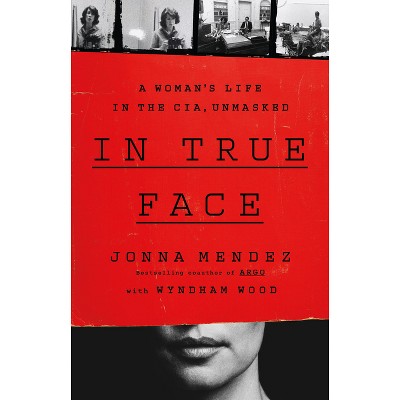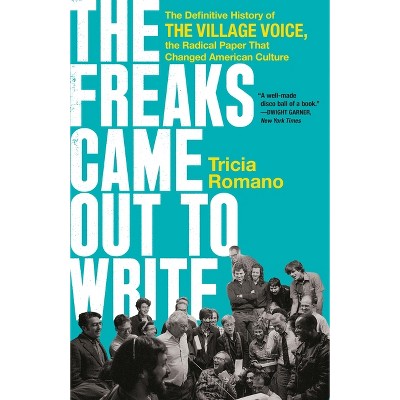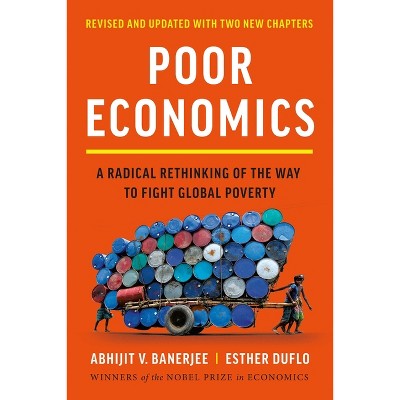Sponsored

We Are as Gods - by Kate Daloz (Hardcover)
$22.12Save $7.88 (26% off)
In Stock
Eligible for registries and wish lists
Sponsored
About this item
Highlights
- At the dawn of the 1970s, waves of hopeful idealists abandoned the city and headed for the country, convinced that a better life awaited.
- About the Author: Kate Daloz received her MFA from Columbia University, where she also taught undergraduate writing and served as assistant director of the Writing Center.
- 384 Pages
- History, United States
Description
About the Book
"Between 1970 and 1974 ten million Americans abandoned the city, and the commercialism, and all the inauthentic bourgeois comforts of the Eisenhower-era America of their parents. Instead, they went back to the land. It was the only time in modern history that urbanization has gone into reverse. Kate Daloz follows the dreams and ideals of a small group of back-to-the-landers to tell the story of a nationwide movement and moment. And she shows how the faltering, hopeful, but impractical impulses of that first generation sowed the seeds for the organic farming movement and the transformation of American agriculture and food tastes. In the Myrtle Hill commune and neighboring Entropy Acres, high-minded ideas of communal living and shared decision-making crash headlong into the realities of brutal Northern weather and the colossal inconvenience of having no plumbing or electricity. Nature, it turns out, is not always a generous or provident host-frosts are hard, snowfalls smother roads, and small wood fires do not heat imperfectly insulated geodesic domes. Group living turns out to be harder than expected too. Being free to do what you want and set your own rules leads to some unexpected limitations: once the group starts growing a little marijuana they can no longer call on the protection of the law, especially against a rogue member of a nearby community. For some of the group, the lifestyle is truly a saving grace; they credit it with their survival. For others, it is a prison sentence. We Are As Gods (the first line of the Whole Earth Catalog, the movement's bible) is a poignant rediscovery of a seminal moment in American culture, whose influence far outlasted the communities that took to the hills and woods in the late '60s and '70s and remains present in every farmer's market, every store selling Stonyfield products, or Keen shoes, or Patagonia sportswear. "--Book Synopsis
At the dawn of the 1970s, waves of hopeful idealists abandoned the city and headed for the country, convinced that a better life awaited. They were full of dreams, mostly lacking in practical skills, and soon utterly out of money. But they knew paradise when they saw it. When Loraine, Craig, Pancake, Hershe, and a dozen of their friends came into possession of 116 acres in Vermont, they had big plans: to grow their own food, build their own shelter, and create an enlightened community. They had little idea that at the same moment, all over the country, a million other young people were making the same move -- back to the land. We Are As Gods follows the Myrtle Hill commune as its members enjoy a euphoric Free Love summer. Nearby, a fledgling organic farm sets to work with horses, and a couple -- the author's parents -- attempts to build a geodesic dome. Yet Myrtle Hill's summer ends in panic as they rush to build shelter while they struggle to reconcile their ideals with the somber realities of physical hardship and shifting priorities -- especially when one member goes dangerously rogue. Kate Daloz has written a meticulously researched testament to the dreams of a generation disillusioned by their parents' lifestyles, scarred by the Vietnam War, and yearning for rural peace. Shaping everything from our eating habits to the Internet, the 1970s Back-to-the-Land movement is one of the most influential yet least understood periods in recent history. We Are As Gods sheds light on one generation's determination to change their own lives and, in the process, to change the world.Review Quotes
"A loving but honest history...Daloz has the journalist's gift for getting people to explain themselves, the historian's ability to explain the context in which they made their choices, and the novelist's power for revealing character through action, plot, and the perfectly chosen detail." --Reason "In an engaging, novelistic style, Daloz traces the founding and growing pains of Myrtle Hill Farm -- the pseudonym for a real commune in the Northeast Kingdom, and a microcosm of the 1970s movement that reversed America's urban migration pattern. The book maintains a delicate balance, neither an exposé of back-to-the-landers nor a celebration of them." --Seven Days "Ms. Daloz has written a book that is both scholarly and intimate. It's sometimes grim, sometimes funny, and always fascinating." --Tena Starr, Barton (VT) Chronicle "A hang-onto-your-seats ride back to the early 1970s, and onto the commune at Myrtle Hill in the Northeast Kingdom...We Are As Gods bubbles like a fermenting batch of kombucha, full of wild life and audacity, youthful energy, inventiveness and success, missteps and tragic accidents." --The North Star Monthly
"Joni Mitchell once said that we've got to get back to the garden, and tens of thousands heeded; in the years surrounding Woodstock, communes sprouted like mushrooms across America. Born to back-to-the-landers but now a denizen of Brooklyn, Daloz writes with firsthand knowledge of the good and bad of these wishfully self-reliant places... Well written and full of firsthand insight." --Kirkus Reviews "How do you move a geodesic dome? A deft, delightful history of the back-to-the-land movement, when a generation of young people turned their idealistic backs on urban life. Kate Daloz is at once clear-eyed and personal; in an artful narrative, she explores the origins of this attempt to live deliberately and its enduring legacies." -Stacy Schiff, Pulitzer Prize-winning author of Cleopatra: A Life "The educational rise and educational fall of rural communes in the 1970s was melodrama to live. Kate Daloz tells the story truly." --Stewart Brand, Editor, Whole Earth Catalog
"Daloz's careful documentation of the movement manages to be both respectful and critical. Keep this book close by for those moments when you think about giving it all up and moving to a goat farm in Montana." --The Frisky "A fascinating account of a utopian movement made even more relevant by the author's personal perspective." --Booklist, Starred Review "A fascinating, well-told exploration of the 1970s back-to-the-land movement." --Santa Fe New Mexican "In this deep study...Daloz gives an intimate look into the social dynamics and experiences [of the Myrtle Hill Farm], putting names and faces on the ambitions, hopes, and failures of the back-to-the-land movement...An informative look at an era that laid the groundwork for the modern organic
movement and its relatives." --Publishers Weekly "Engaging...Daloz's frank account is revealing; she doesn't shy away from documenting the many problems that plagued the fervent communards, including a lack of diversity and reliance on unacknowledged privilege...Perhaps the wave of like-minded idealists venturing forth today will learn from both their historical mistakes and successes. Memoir lovers and social historians will enjoy this account of radical living." --Library Journal
About the Author
Kate Daloz received her MFA from Columbia University, where she also taught undergraduate writing and served as assistant director of the Writing Center. She teaches in the writing center at Baruch College and works as a freelance writing consultant. Daloz grew up in Vermont's Northeast Kingdom, in the geodesic dome her parents built after coming home from the Peace Corps. She was also a research assistant for Ron Chernow (Washington: A Life) and Stacy Schiff (Cleopatra: A Life), as well as Brenda Wineapple (White Heat: The Friendship of Emily Dickenson and Thomas Wentworth Higginson) and is a founding member of Neuwrite: Columbia Scientists and Writers. Her work has appeared in the American Scholar among other publications. Kate Daloz lives in Brooklyn with her husband and children.Dimensions (Overall): 9.4 Inches (H) x 6.4 Inches (W) x 1.3 Inches (D)
Weight: 1.3 Pounds
Suggested Age: 22 Years and Up
Number of Pages: 384
Genre: History
Sub-Genre: United States
Publisher: PublicAffairs
Format: Hardcover
Author: Kate Daloz
Language: English
Street Date: April 26, 2016
TCIN: 85747691
UPC: 9781610392259
Item Number (DPCI): 247-10-8122
Origin: Made in the USA or Imported
If the item details aren’t accurate or complete, we want to know about it.
Shipping details
Estimated ship dimensions: 1.3 inches length x 6.4 inches width x 9.4 inches height
Estimated ship weight: 1.3 pounds
We regret that this item cannot be shipped to PO Boxes.
This item cannot be shipped to the following locations: American Samoa (see also separate entry under AS), Guam (see also separate entry under GU), Northern Mariana Islands, Puerto Rico (see also separate entry under PR), United States Minor Outlying Islands, Virgin Islands, U.S., APO/FPO
Return details
This item can be returned to any Target store or Target.com.
This item must be returned within 90 days of the date it was purchased in store, shipped, delivered by a Shipt shopper, or made ready for pickup.
See the return policy for complete information.
Trending Non-Fiction

$15.68
Buy 2, get 1 free select books
4.8 out of 5 stars with 181 ratings

$19.31
was $20.98 New lower price
Buy 2, get 1 free select books
4.1 out of 5 stars with 53 ratings

$19.58
MSRP $29.00
Buy 2, get 1 free select books
4.7 out of 5 stars with 11 ratings

$4.59
MSRP $7.99
Buy 2, get 1 free select books
4.8 out of 5 stars with 116 ratings

$6.20
MSRP $10.95
Buy 2, get 1 free select books
4.8 out of 5 stars with 32 ratings

$7.09
MSRP $9.99
Buy 2, get 1 free select books
4.9 out of 5 stars with 45 ratings
Discover more options

$16.50 - $18.99
MSRP $18.99 - $30.00
Buy 2, get 1 free select books
5 out of 5 stars with 1 ratings




